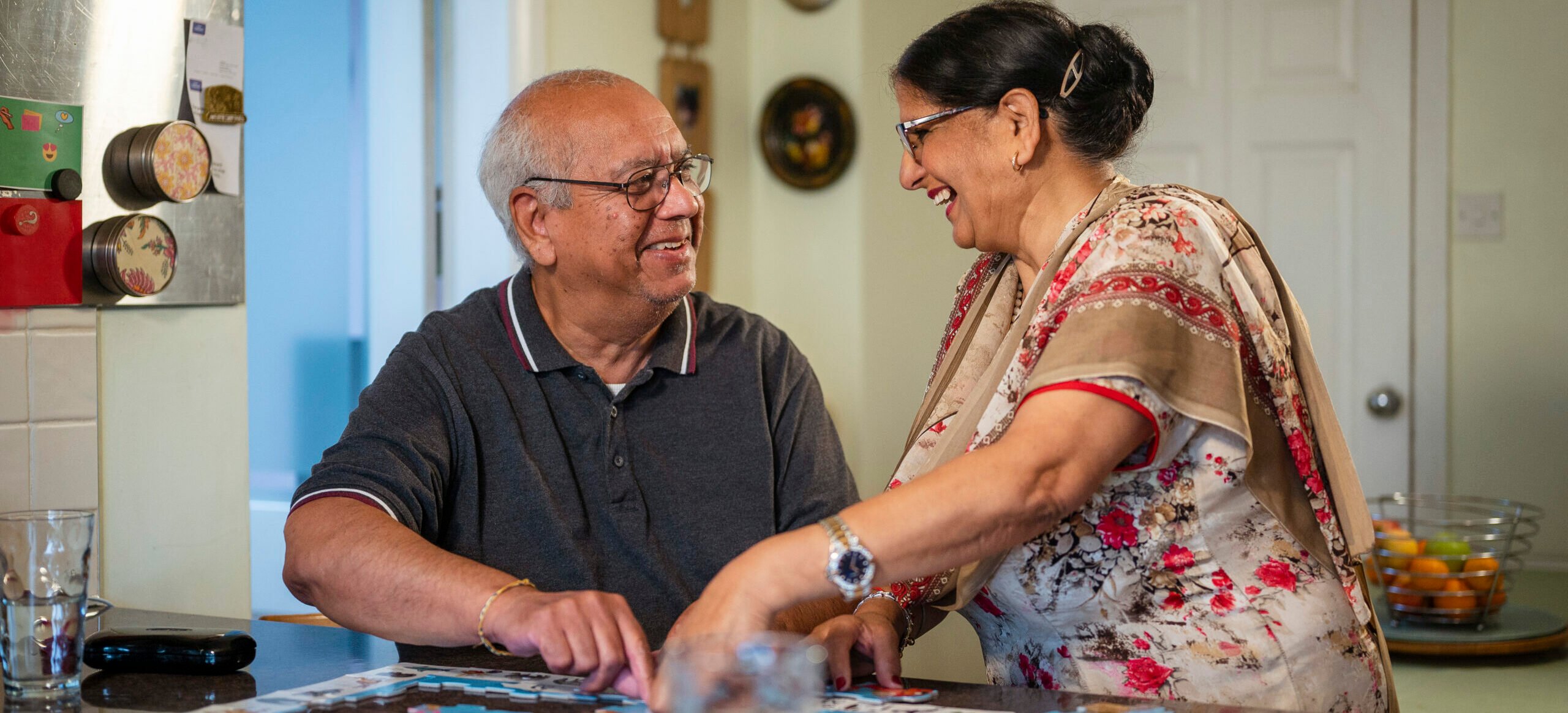What is an advance statement?
Tags
Living with Dementia
If someone becomes unable to make decisions, an advance statement can be used by a professional to get guidance on how an individual wishes to be taken care of
An advance statement is a written document that outlines personal preferences for various aspects of life, such as living arrangements and desired care or support. The individual should write the statement before they lose mental capacity and independence.
An advance statement is different to a will, as the subject of the advance statement is still living, and it only states wishes about how an individual would like to live everyday life.
Who can make an advance statement?
Advance statements were developed earlier this century to allow people to set out their wishes should they become mentally incapacitated.
Anyone can make an advance statement, which their relatives and health professionals should do their best to follow if the statement’s writer cannot express their wishes in the future.
Advance statements are important for anyone diagnosed with dementia, as it allows them to set out their likes and dislikes and provide carers with a good indication of how they would like to be treated and what they would like to happen as the condition takes hold.
The advance statement can only be made by the person it relates to, so you can’t make one for your loved one if they no longer have the capacity to write one themselves.
What information can an advance statement contain?
The primary purpose of the advance statement should be an expression of your loved one’s care preferences.
The preferences should be whether your loved one wants to receive dedicated support from a live-in carer, move into a care home, or even a retirement village.
Examples that might be included in an advanced statement:
- I would prefer to remain in my own home rather than go into a care home
- I would like to maintain a vegetarian diet
- I would like to spend time in the fresh air every day
- I would prefer any future carers to be female
- I would like to keep attending my local church services
- I would like a nightlight as I don’t like the dark
- I wish to continue to enjoy watching nature programmes on the television
Is the advance statement legally binding?
There is no legal requirement to set out an advance statement in writing, but having one is helpful, as everyone involved in your or your loved one’s future care needs can then be supplied with a copy.
Social workers, medical staff and family members can all be given a copy of the statement so that everyone knows your or your loved one’s wishes regarding future care.
Conforming to every aspect of the wishes stated will only sometimes be possible. For example, the statement could say that residential care isn’t wanted. However, circumstances may mean that moving into a care home is needed due to failing health or other conditions that make care at home difficult.
Should an advance statement be witnessed and signed?
Signing an advance statement is optional, but your signature indicates that the written wishes are your own.
What is the difference between an advance statement and an advance decision?
An advance statement lists an individual’s preferences in terms of lifestyle, and is not a legally binding document. An advance decision is a legal document that allows individuals to refuse specific medical treatments in the future.
An advance statement can include information about future medical treatment, for example, if you don’t want to be taken to hospital. However, only an advance decision can set out conditions about refusing further medical interventions, such as not having a blood transfusion on religious grounds or declining future chemotherapy for recurring cancer.
Where a decision is refusing treatment, it’s crucial to ensure that this is written down and signed, along with confirmation that you or your loved one fully understands the implications of such a decision.
Medical staff are obliged to abide by this decision except under exceptional circumstances, such as the development of a new and more efficient treatment that the individual had not been aware of or if they believe that your relative did not have the mental capacity to make such a decision in the first place.

Why make an advance statement?
Ultimately, writing an advance statement is about having a specific, focused plan, removing stress from the wider family when decision-making becomes more difficult.
In many ways, as it’s not strictly a legal document, an advance statement is there purely for additional peace of mind. Especially when it comes to the following:
Make the big decisions — whether it’s care options or anything else, an advance statement takes the pressure of making the right decisions away from the wider family.
Start an important discussion — taking the first difficult steps to look ahead. This can make time to get the opinions of people you or your loved one trust, be it a GP, a family member, or anyone else.
Can a Lasting Power of Attorney ignore the wishes on an advance statement and advance decision?
If someone holds lasting power of attorney over someone with an advance statement, they should have a copy. The statement should be taken into account by the attorney when deciding what the best decisions are.
When it comes to an advance decision, it’s possible also to have a lasting power of attorney, and it’s advisable to ensure that wishes are not in conflict. The most recent document will take priority over the other.
If you have a health and welfare lasting power of attorney (LPA) and make an advance decision – your attorney under the LPA can override your advance decision if you have given them the authority for a specific decision. The attorney must act in the person’s best interests, including considering any wishes expressed in the past. The attorney can’t override its contents if an advance decision is made after registering an LPA.
Read more care guides

Creating a dementia-friendly home environment
Creating a dementia friendly home environment Jump to Lighting Floors Furniture Technology Noise levels Outdoor spaces Bedroom Kitchen Bathroom Living with dementia can be

Living with Dementia: Your Essential Guide
Living with dementia – your essential guide In this guide, we’ve shared expert views, practical advice and personal stories on navigating life with dementia.

How to prepare for a live-in caregiver
Care at home: how to prepare the home for a live-in caregiver A live-in carer can make a massive difference to your loved one’s quality

6 tips for finding the right live-in carer
Finding the right live-in carer is a significant and deeply personal decision, impacting your loved one and the entire family. You’re seeking someone trustworthy, compassionate,

The cost of care – everything you need to know
The true cost of care – everything you need to know Discover the true cost of care and explore your funding options with our care

Understanding autism in older adults
While Autism is usually diagnosed in childhood, an increasing number of older adults are being formally diagnosed in later life. Masking autism symptoms can result